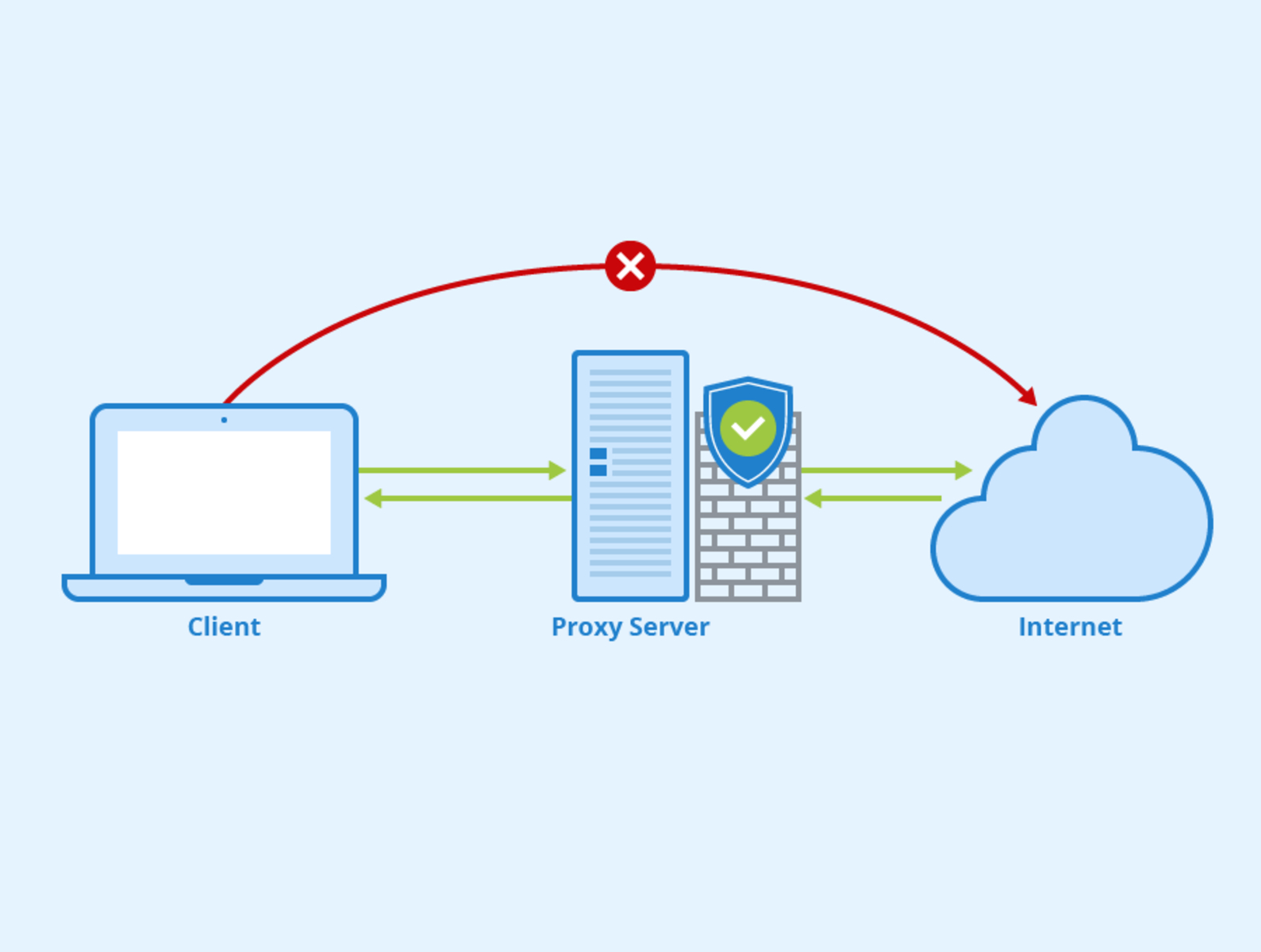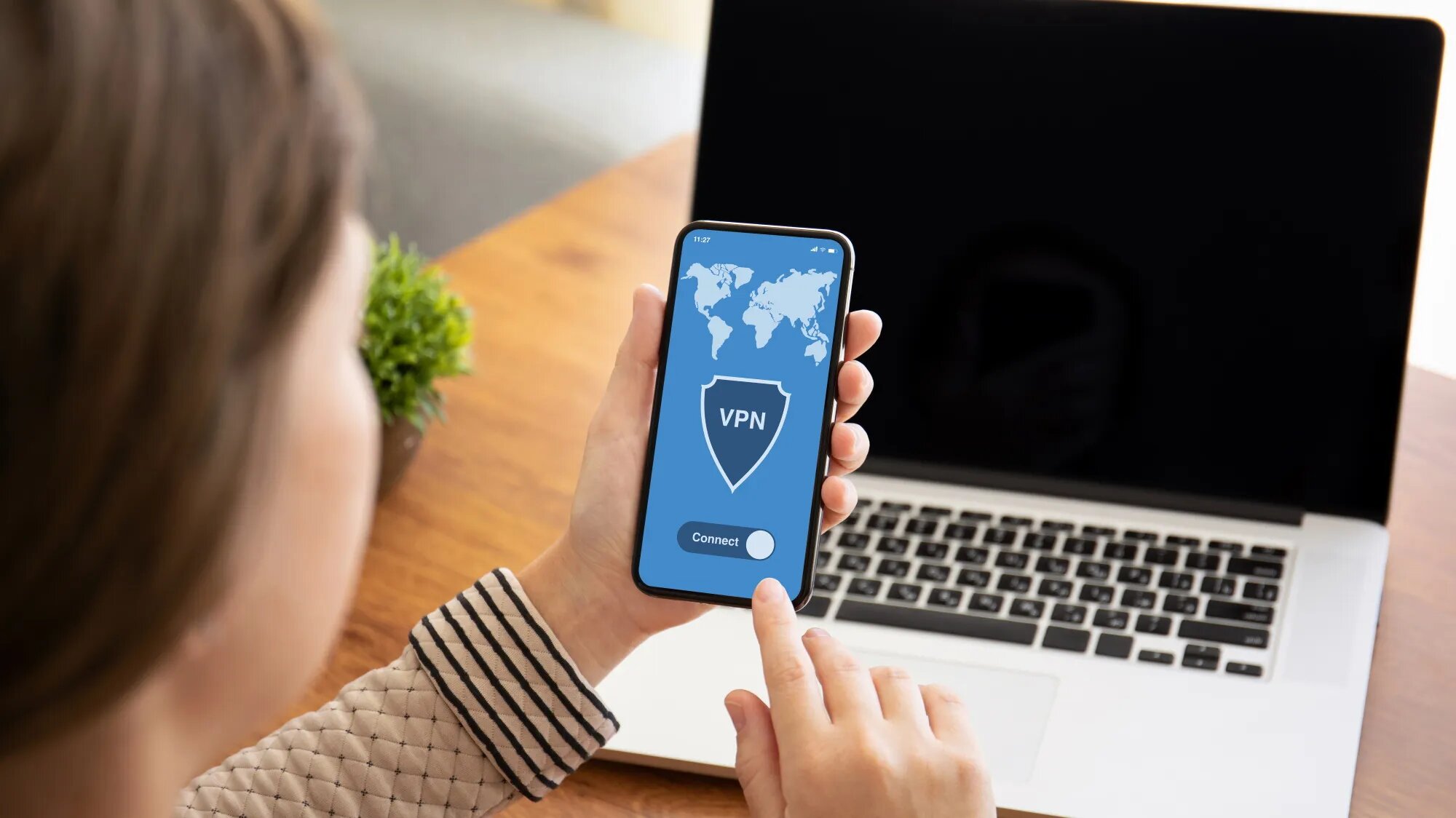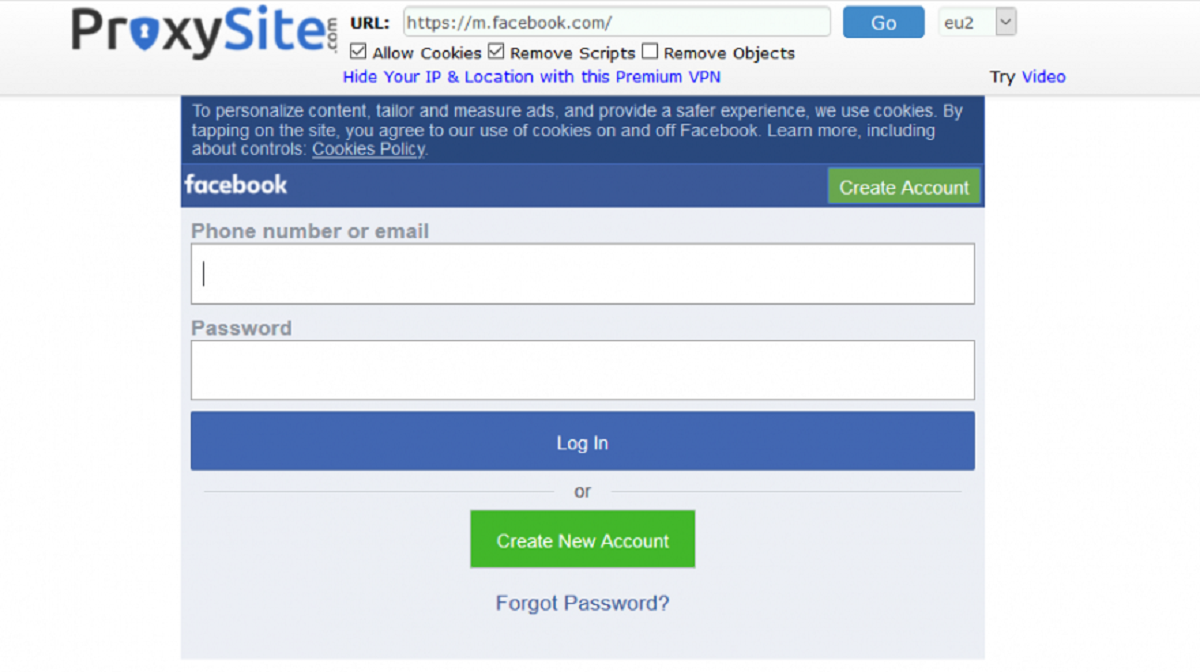What Is A VPN Proxy
A VPN proxy, short for Virtual Private Network proxy, is a tool that allows individuals to browse the internet anonymously and securely. It acts as an intermediary between the user’s device and the internet, encrypting all data transmitted through the connection. This encryption ensures that third parties, such as hackers or surveillance agencies, cannot intercept or track the user’s online activities.
When a user connects to a VPN proxy, their internet traffic is redirected through a remote server located in a different geographical location. This server acts as a middleman, masking the user’s true IP address and replacing it with the IP address of the server. This makes it virtually impossible for anyone to determine the user’s identity or trace back their online actions.
Moreover, a VPN proxy provides an additional layer of security by encrypting all data that passes through it. This encryption makes it incredibly difficult for unauthorized individuals to intercept or decipher the information, protecting sensitive data such as login credentials, financial transactions, and personal details.
Furthermore, VPN proxies also offer enhanced privacy by allowing users to bypass geo-restrictions and access content that may be blocked or censored in their location. By connecting to a server in a different country, users can bypass these restrictions and enjoy unrestricted access to websites, streaming services, and online platforms.
In summary, a VPN proxy is a powerful tool that provides anonymity, security, and unrestricted internet access. It enables users to browse the web safely, bypass geo-restrictions, and protect their sensitive information from prying eyes. Whether you want to protect your privacy, secure your data, or access blocked content, a VPN proxy is an essential tool in today’s digital age.
How Does a VPN Proxy Work?
A VPN (Virtual Private Network) proxy works by creating a secure and encrypted connection between the user’s device and the internet. When a user connects to a VPN proxy server, their internet traffic is routed through this server, masking their IP address and encrypting their data.
The process of how a VPN proxy works can be broken down into the following steps:
- Encryption: When a user initiates a connection to a VPN proxy, the client software on their device encrypts their internet traffic using advanced encryption protocols. This encryption ensures that all data transmitted between the user’s device and the VPN proxy server is secure and cannot be intercepted by unauthorized individuals.
- Routing: Once the user’s data is encrypted, it is sent through a secure tunnel to the VPN proxy server. The VPN proxy server acts as an intermediary, receiving the encrypted data and decrypting it before forwarding it to its intended destination on the internet. This process ensures that the user’s IP address is masked and replaced with the IP address of the VPN proxy server.
- IP Masking: By replacing the user’s IP address with that of the VPN proxy server, a VPN proxy effectively hides the user’s true location and identity. Websites, online services, and other online entities will only see the IP address of the VPN proxy server, making it difficult for them to track or identify the user.
- Tunneling: The encrypted data is transmitted through a secure tunnel between the user’s device and the VPN proxy server. This tunnel prevents third parties, such as hackers or government surveillance agencies, from accessing or intercepting the user’s data. It also ensures that the user’s online activities are private and protected from unauthorized eyes.
- Decryption: Once the encrypted data reaches its destination on the internet, it is decrypted by the VPN proxy server and sent to the appropriate recipient. This recipient can be a website, an online service, or any other entity that the user is accessing over the internet.
In summary, a VPN proxy works by encrypting the user’s internet traffic, routing it through a secure tunnel to a VPN proxy server, and masking the user’s IP address. This process ensures that the user’s online activities are private, secure, and anonymous.
Benefits of Using a VPN Proxy
Using a VPN (Virtual Private Network) proxy offers a range of benefits that enhance your online experience and protect your privacy. Here are some key advantages of using a VPN proxy:
- Enhanced Security: A VPN proxy encrypts your internet traffic, ensuring that your data is protected from unauthorized access. This is especially important when using public Wi-Fi networks, where hackers could potentially intercept your sensitive information.
- Anonymity and Privacy: By masking your IP address and routing your internet traffic through a remote server, a VPN proxy provides anonymity and protects your privacy. It makes it difficult for websites, advertisers, or government agencies to track your online activities or identify your real location.
- Bypassing Geo-Restrictions: A VPN proxy allows you to bypass geo-restrictions and access content that may be blocked in your region. By connecting to a server in a different location, you can virtually appear as if you are browsing from that country, giving you access to restricted streaming services, websites, and online platforms.
- Secure Remote Access: VPN proxies enable secure remote access to networks and resources. If you work remotely or need to access sensitive information from a public network, a VPN proxy allows you to establish a secure connection to your workplace or personal network, ensuring that your data remains encrypted and protected.
- Preventing Bandwidth Throttling: Some internet service providers (ISPs) may throttle your internet connection when streaming or downloading large files. By using a VPN proxy, you can encrypt your traffic and prevent ISPs from throttling your bandwidth, ensuring a smooth and uninterrupted browsing experience.
- Protecting Against Identity Theft: VPN proxies add an extra layer of security to your online activities, making it harder for cybercriminals to steal your personal information or hack into your accounts. The encrypted connection and masked IP address provided by a VPN proxy help safeguard your sensitive data.
In summary, using a VPN proxy offers numerous benefits, including enhanced security, anonymity, the ability to bypass geo-restrictions, secure remote access, prevention of bandwidth throttling, and protection against identity theft. Incorporating a VPN proxy into your online activities can greatly enhance your privacy and security, providing you with peace of mind while browsing the internet.
Difference Between VPN and Proxy
While both VPN (Virtual Private Network) and proxy servers serve the purpose of enhancing online privacy and security, there are some key differences between the two. Understanding these differences will help you choose the right tool for your specific needs. Here are the main distinctions between VPN and proxy:
- Encryption: One of the primary differences between VPN and proxy servers is the level of encryption they provide. A VPN encrypts all your internet traffic, ensuring that your data is secure and cannot be intercepted by anyone. On the other hand, a proxy server does not encrypt your traffic, leaving it vulnerable to unauthorized access.
- Anonymity: A VPN offers a higher level of anonymity compared to a proxy server. When you connect to a VPN, your IP address is masked, and your internet activities are routed through a remote server, making it difficult for anyone to track your online movements. With a proxy server, your IP address is also masked, but your online activities can still be traced back to you.
- Functionality: VPNs are more versatile in terms of functionality. In addition to providing online privacy, a VPN can also bypass geo-restrictions, allowing you to access content that may be blocked in your region. Proxy servers, on the other hand, primarily serve as intermediaries between your device and the internet, and do not have the same capabilities in terms of bypassing geo-restrictions.
- Network-wide Protection: VPNs offer network-wide protection. Once you connect to a VPN, all your internet traffic is encrypted and secured, regardless of which device or application you are using. Proxy servers, on the other hand, typically only protect the traffic that is routed through the server, which means that other applications or devices on your network may not be secure.
- Speed: Proxy servers tend to be faster than VPNs since they do not involve as much encryption and data processing. If your primary concern is speed, a proxy server may be a better choice. However, if security and privacy are your top priorities, a VPN is the better option.
In summary, while VPNs and proxy servers both provide online privacy and security, there are key differences between the two. VPNs offer encryption, complete anonymity, bypassing of geo-restrictions, network-wide protection, and enhanced security but may be slower. Proxy servers, on the other hand, do not provide encryption, offer limited anonymity, and are generally faster. Consider your specific needs and priorities to determine whether a VPN or proxy server is the right choice for you.
Types of VPN Proxies
There are different types of VPN (Virtual Private Network) proxies available, each with its own set of features and functionalities. Understanding the various types can help you choose the one that best suits your needs. Here are the most common types of VPN proxies:
- HTTP Proxy: An HTTP proxy serves as an intermediary between your device and the websites you visit on the internet. It supports HTTP connections and can provide basic encryption and anonymity. However, it is limited to web browsing and does not offer full VPN functionality.
- SOCKS Proxy: A SOCKS (Socket Secure) proxy operates at a lower level than an HTTP proxy, enabling it to handle a wide range of internet protocols, including HTTP, FTP, and SMTP. It is more versatile than an HTTP proxy but still lacks some of the advanced features of a full VPN.
- SSL/TLS Proxy: An SSL/TLS proxy is designed to provide secure and encrypted connections for specific applications or services. It uses SSL (Secure Sockets Layer) or TLS (Transport Layer Security) protocols to encrypt data and ensure secure communication. This type of proxy is commonly used for secure email services or accessing specific websites securely.
- OpenVPN: OpenVPN is an open-source VPN protocol that offers robust security and is widely used across various devices and operating systems. It provides secure and encrypted connections and supports features such as authentication, data integrity, and data confidentiality. OpenVPN requires a client software to establish a connection.
- L2TP/IPsec: L2TP (Layer 2 Tunneling Protocol) combined with IPsec (Internet Protocol Security) is a popular VPN protocol that offers high levels of security. L2TP/IPsec provides strong encryption and authentication, making it suitable for securing remote connections and providing network-wide protection.
- PPTP: PPTP (Point-to-Point Tunneling Protocol) is one of the older VPN protocols but still widely supported by various operating systems and devices. It offers decent encryption and is known for its ease of setup and use. However, PPTP is considered less secure than other VPN protocols and may not be suitable for highly sensitive data.
In summary, there are different types of VPN proxies available, each with its own strengths and weaknesses. HTTP and SOCKS proxies are simpler options that offer basic encryption and limited functionality, while SSL/TLS proxies provide secure connections for specific applications or services. OpenVPN, L2TP/IPsec, and PPTP are VPN protocols that offer varying levels of security and compatibility. Consider your specific requirements and priorities to choose the type of VPN proxy that best meets your needs.
Choosing the Right VPN Proxy
When selecting a VPN (Virtual Private Network) proxy, it’s important to consider several factors to ensure that you choose the right one for your needs. Here are some key aspects to consider when selecting a VPN proxy:
- Security and Privacy: Look for a VPN proxy that offers strong encryption protocols and follows strict privacy policies. Ensure that the VPN proxy has a no-logs policy, meaning it doesn’t keep any logs of your online activities, providing maximum privacy.
- Server Network: Consider the server network of the VPN proxy. The more server locations available, the better the chances of finding a server near your physical location for faster connection speeds and access to geo-restricted content.
- Device and Platform Compatibility: Ensure that the VPN proxy is compatible with the devices and platforms you use. Whether it’s Windows, Mac, iOS, Android, or other operating systems, make sure the VPN proxy has dedicated apps or supports the necessary protocols for your devices.
- Connection Speed and Bandwidth: Check the VPN proxy’s connection speed and bandwidth capabilities. A reliable VPN proxy should offer fast speeds and sufficient bandwidth to support your online activities without interruptions or limitations.
- Customer Support: Look for a VPN proxy that provides excellent customer support. This includes having 24/7 live chat support or responsive email support to help resolve any issues or address any concerns you may have while using the VPN proxy.
- Additional Features: Consider any additional features offered by the VPN proxy. This could include features like split tunneling, kill switch, ad-blocking, or malware protection. These features can enhance your overall browsing experience and provide added security.
- Price and Payment Options: Compare the pricing plans of different VPN proxies, taking into account the features and services they offer. Look for flexible payment options like monthly or annual subscriptions. Also, consider if the VPN proxy offers a money-back guarantee or a free trial to test their service before committing.
In summary, choosing the right VPN proxy involves considering factors such as security, server network, device compatibility, connection speed, customer support, additional features, and pricing. By carefully evaluating these aspects, you can select a VPN proxy that provides the necessary security, performance, and features to meet your specific needs and enhance your online experience.
Setting Up a VPN Proxy
Setting up a VPN (Virtual Private Network) proxy is a straightforward process that allows you to protect your online privacy and enhance your security. Here are the general steps to set up a VPN proxy:
- Choose a VPN Proxy: Start by selecting a VPN proxy that meets your requirements in terms of security, server network, and compatibility with your devices and platforms. Consider factors such as encryption, logging policy, server locations, and supported protocols.
- Sign Up and Download: Visit the website of the chosen VPN proxy provider and sign up for an account. Choose a subscription plan that suits your needs and proceed with the registration. Once done, download the appropriate VPN proxy software or app for your device.
- Install and Launch: Install the VPN proxy software or app on your device. Follow the provided installation instructions and launch the VPN proxy application. Log in to your account using the credentials you created during sign-up.
- Select a Server Location: Upon launching the VPN proxy application, you will typically be presented with a list of server locations to choose from. Select a server location that suits your needs. For example, if you want to bypass geo-restrictions, choose a server in the desired country.
- Connect to the VPN Proxy Server: Click or tap the connect button to establish a connection to the VPN proxy server. The VPN proxy software will initiate the connection process, encrypting your internet traffic and masking your IP address.
- Verify the Connection: Once connected, confirm that the VPN proxy is working properly. You can visit an IP checking website or use online tools to verify that your IP address has been changed to the server location you selected. Also, ensure that your internet activities are secure and protected.
- Configure Additional Settings: Depending on the VPN proxy software, you may have the option to configure additional settings, such as enabling a kill switch, selecting specific protocols, or customizing encryption preferences. Adjust these settings according to your preferences and requirements.
In summary, setting up a VPN proxy involves selecting a provider, signing up for an account, downloading the software or app, installing and launching it on your device, choosing a server location, connecting to the VPN proxy server, and verifying the connection. Take advantage of any additional configuration options available to customize your VPN proxy settings for an optimal browsing experience.
Frequently Asked Questions about VPN Proxies
Here are answers to some commonly asked questions about VPN (Virtual Private Network) proxies:
- What is the difference between a VPN and a VPN proxy?
While both VPNs and VPN proxies serve the purpose of enhancing online privacy and security, the main difference lies in the level of encryption and functionality they provide. VPNs offer advanced encryption, secure connections, and the ability to bypass geo-restrictions, while VPN proxies provide basic encryption and act as intermediaries between your device and the internet. - Are VPN proxies legal?
VPN proxies themselves are legal in most countries. However, the legality of using a VPN proxy may vary depending on your location and how you use it. It is important to comply with the laws and regulations of your country when using a VPN proxy. - Can a VPN proxy be used on mobile devices?
Yes, VPN proxies can be used on mobile devices. Many VPN proxy providers offer dedicated apps for iOS and Android devices, making it easy to secure your internet connection and protect your privacy while browsing on your mobile phone or tablet. - Can a VPN proxy slow down my internet connection?
It is possible for a VPN proxy to slightly affect your internet speed as the data needs to be encrypted and routed through a remote server. However, a high-quality VPN proxy provider will optimize their servers to minimize any noticeable impact on your browsing speed. - Do VPN proxies work with all applications and services?
VPN proxies typically work with most web browsers and applications. However, certain applications or services may have specific requirements or restrictions that can impact their compatibility with VPN proxies. It is recommended to check the VPN proxy provider’s website or support documentation for any application-specific instructions. - Are VPN proxies completely anonymous?
While VPN proxies provide a certain level of anonymity by masking your IP address and encrypting your data, they are not completely anonymous. It is important to remember that other identifying factors, such as your online activities or personal information you provide, can still be traceable. - Can I use a VPN proxy for streaming content?
Yes, a VPN proxy can be used to access geo-restricted streaming content. By connecting to a server located in the desired country, you can bypass the restrictions and access streaming services that may be blocked or unavailable in your region. - What should I consider when choosing a VPN proxy provider?
When choosing a VPN proxy provider, consider factors such as encryption protocols, server network, device compatibility, connection speed, customer support, additional features, and pricing plans. Evaluating these aspects will help you select a provider that meets your specific needs and preferences.
In summary, VPN proxies offer a range of benefits but also raise questions about legality, compatibility, anonymity, and speed. Understanding the differences between VPNs and VPN proxies, and considering factors when choosing a provider, will help you make informed decisions and ensure an optimal VPN proxy experience.
Conclusion
VPN (Virtual Private Network) proxies are powerful tools for enhancing online privacy, security, and access. By encrypting your internet traffic, routing it through a remote server, and masking your IP address, a VPN proxy provides anonymity and protects your sensitive data from prying eyes.
The benefits of using a VPN proxy are numerous. It offers enhanced security, preventing unauthorized access to your data while browsing on public Wi-Fi networks. VPN proxies also allow you to bypass geo-restrictions and access content that may be blocked in your region, expanding your online experience. Additionally, VPN proxies are valuable for secure remote access, protecting against bandwidth throttling, and safeguarding sensitive information from identity theft.
When selecting a VPN proxy, consider aspects such as security, server network, device compatibility, connection speed, customer support, additional features, and pricing. This will ensure that you choose the right VPN proxy that caters to your specific needs and requirements.
Setting up a VPN proxy is a straightforward process that involves choosing a provider, signing up for an account, downloading and installing the software or app, selecting a server location, connecting to the VPN proxy server, and verifying the connection. Additional configuration options can be customized according to your preferences.
Finally, by addressing frequently asked questions about VPN proxies, we have provided clarification on various aspects such as their legality, compatibility, anonymity, and functionality.
In today’s digital age, where online privacy and security are of utmost importance, incorporating a VPN proxy into your browsing habits is a valuable step. It empowers you to take control of your online experience, protecting your personal information and browsing with peace of mind.

























